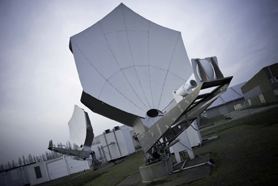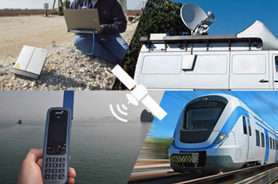Africa and the MENA region have been noted as areas with a huge population that are underserved by any means of communication—a great deal of effort is ongoing to bring comms access to those in remote areas.

Some of those efforts have failed; however, that has not halted many companies and individuals from ambitiously working on plans that will ultimately lead to future connectivity successes, to the benefit of the entire planet.
In addition to technological and infrastructure issues, there are many barriers to entry into this market. With more than 1.2 billion people living in Africa, and several hundred million living in Middle East, there are many basic needs, of which communication may be the last in an individual’s wish list of need.
However, given that fact regarding what is and what isn’t important to citizens, this doesn’t mean efforts must be curtailed or investment withdrawn in working to connect all of the people around the globe, no matter their location.
There are several ongoing efforts to address the digital gap in these regions—satellite has a pivotal role to play in these projects.
Broadband connectivity is the main thrust, especially via satellite, and is the pivotal play within many propositions concerning the installation of services in this region of the world—thought must be given by current and “would be” providers to existing macro environments and already available systems.
Does communication simply mean only broadband Internet connectivity? Examining the progress of broadband technology in the more advanced areas of the world offers a far clearer picture about how the various stages were completed to achieve those successful connectivity outcome.
Note how every stage of communications development has contributed to the next advanced stage in terms of the various “ingredients” involved, such as technological elements, ecosystems considerations, infrastructure and so on.
There are many untapped or less invested areas in Africa and MENA where sophisticated technological ecosystems are far from resident. The majority of the citizens in these areas are traditionally far more familiar with technologies such as radio and TV.
Through the traditional infrastructure is where communication knowledge could be leveraged to build advanced communicaton systems through the addition of more flexible technology to the already installed legacy systems.
Mixing SATCOM with radio and TV systems and adding offline data through the current and legacy infrastructure could be considered as an interim solution, while the long term agenda is pursued to bring satellite-based connectivity to remote communities.
Educating people regarding communications networking through their radio and TV channels is quite doable. The system is already in place, is cost effective and is easy to maintain.

Leveraging the exiting ecosystem to educate people in regard to the initial steps would be a solid platform upon which to start.
After the basics have been established, innovative and more advanced features would then built onto the legacy technologies to deliver more content to these needy areas—healthcare, lifestyle, and general education, as well as foreign language courses, are all superb candidates for promotion. Such programs would be highly attractive parts of projects that could be ultimately delivered through satellite connectivity,
For example, healthcare, which is already efficiently and effectively delivered in many areas of the world via SATCOM.
Education and the awareness developed through learning are among the other main elements that achieve their goals through the delivery of information through satellite connectivity.
For remote areas with current connectivity, a Video on Demand (VoD) healthcare channel with pre-recorded, as well as offline content, could deliver basic health information to viewers as well as inform them as to the services available at nearby health stations. VoD can also be used to relay services and installation information to those who are eager to join the connected community by laying the groundwork for more advanced comms.

With SATCOM delivery, real-time medical consultancy services that are staffed by experts who are able to leverage the health care system to high efficiency and effectiveness and bring enormous value to the community and the health of the citizens can be fully expected.
SATCOM technologies permit communications between patients and medical staff with convenience and fidelity as well as are able to manage the transmission of medical imaging and health informatics data from one site to another. High resolution imagery detailing radiology examinations and lab results serve to bring diagnosis and solutions to those in remote areas who previously had never had the opportunity to be treated properly and quickly for their ailments.
Telemedicine enables the healthcare community to be connected together around the globe. Such SATCOM-enabled relationships enable professionals to share their medical expertise to develop additional knowledge—and to share their educated thoughts—in building usable healthcare data for remote areas of the world.
SatHealth will assist the professional medical communities in applying cures for new diseases as well as to offer more immediate treatment of maladies that range from common viruses to broken bones to as yet unknown
medical challenges.
Reporting unusual conditions or a communicable disease quickly and then receiving information regarding the proper precautionary measures and treatments can save the lives of thousands—even millions.
SatHealth—TeleHealth—is all about life saving through timely communication. SATCOM is a major actor in this crucial market, especially for those millions of suffering citizens in remote areas, such as Africa and MENA as well as other unconnected locations across the globe.
northtelecom.com/

Mahdi N. Mehrabi is the CTO of the NorthTelecom Group and also the Managing Director for the company’s office in Singapore, which covers the APAC region. Mahdi has been working in technology and business development for the last six years and he has extensive experience and expertise in leading innovative and challenging technological projects.
He has more than 18 years of experience and a proven track record in the telecommunication and aviation fields and founded and managed a number of businesses and projects in the telecommunications arena in general and the satellite industry in particular for the last six years. Mahdi was appointed the managing director of NorthTelecom.


